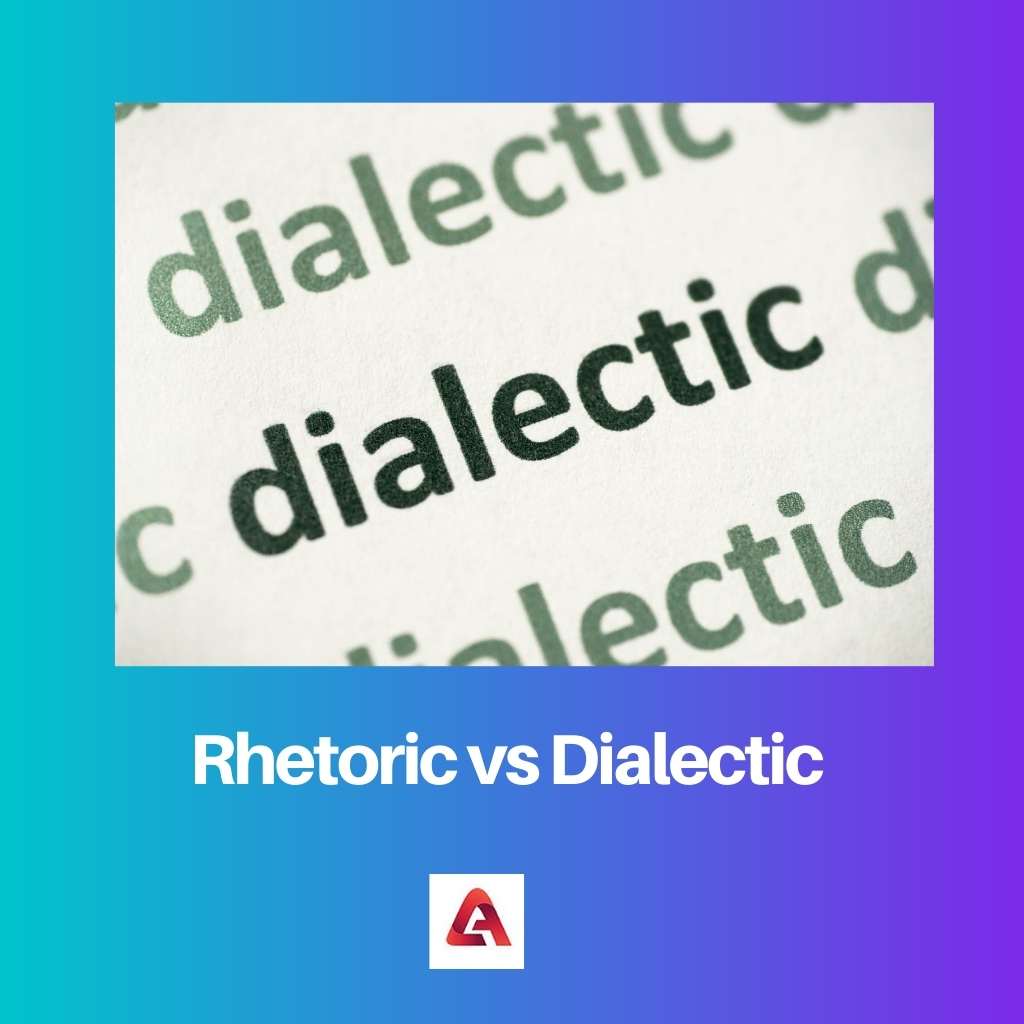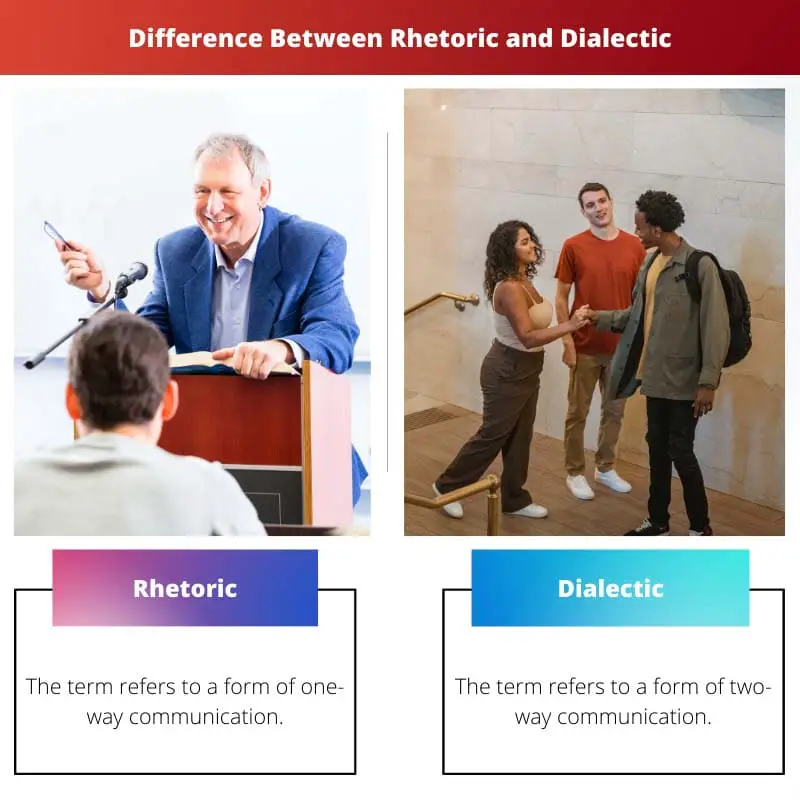It is a very famous proverb that words are mightier than the sword. This saying denotes that words can influence the entire mass of people and make them do anything or everything the speaker wishes to do if the rumours are conveyed correctly.
Rhetoric and Dialectic are two types of manner of speech used widely worldwide, and it cannot be very clear to differentiate between these two as they are very similar to one another.
Key Takeaways
- Rhetoric involves persuasive communication techniques to influence the beliefs or actions of an audience.
- Dialectic focuses on logical reasoning and structured discussion to explore, analyze, and resolve disagreements or conflicts.
- Rhetoric relies on emotional appeals, while dialectic emphasizes rational thought and the exchange of opposing ideas.
Rhetoric vs Dialectic
The difference between Rhetoric and Dialectic is that the former represents the art of expressing a person’s thoughts through one-way communication only. But on the other hand, the latter represents another form of expression in which two-way communication is used to express one’s thoughts more clearly.

Our communication is called rhetoric when it takes place between the speaker and the audience, and there is a negligible amount of interaction between these two fraternities.
The person who happens to convey his thoughts keeps on speaking and tries to persuade the people who are listening to him through his speaking skills only.
Better communication is called Dialectic when there is a dialogue between the speaker and the listener, and there is an active interaction between the two fraternities in which the speaker tries to convey his thoughts or beliefs through communication from both sides.
Comparison Table
| Parameters of Comparison | Rhetoric | Dialectic |
|---|---|---|
| Meaning | The term refers to a form of one-way communication. | The term refers to a form of two-way communication. |
| Nature of communication | Logical arguments are used to convince the listeners. | It is a bilateral process in which both parties find equal participation. |
| Uses | Heavy words are used to persuade the audience | The speaker only happens to be involved in the process of communication. |
| Usually delivered at | It is used in places where large gatherings are being addressed. | It is used in places where there are few people to communicate with. |
| Presence of arguments | In this form of speech, argumentative skills are not used. | In this form of speech, argumentative skills are used. |
| Involves | Speaker only happens to be involved in the process of communication. | It involves the speaker as well as the listener. |
What is Rhetoric?
Rhetoric has been explained in multiple dictionaries and word banks as the art of persuading someone, especially a human being.
In other words, when a person communicates with other persons through a unilateral process only and communicates his own beliefs and thoughts without giving a chance to the audience to interact with that person, it is called that the person is using the rhetorical form of speech.
This process is called unilateral because it does not involve interaction with the people to whom the communication is being addressed, and the speaker happens to be the main centre of the communication.
The speaker uses heavy words to persuade the audience to believe whatever he says about any particular topic.
This form of speech is most visibly used in places huge gatherings are addressed by the speakers because, in such cases, there is minimal scope for allowing interaction between the speaker and the audience.
It can be said that this communication happens to be a sort of closed web in which only the speaker happens to be the key player.

What is Dialectic?
The term dialectic originates from the term dialogue in its end.
The fundamental principle of this form of communication happens to be the interaction between the person who is communicating and the person to whom the communication is being done.
In simple words, it is said that a person is using a dialectic form of communication when he expresses his views to the audience and allows the audience to question him to develop a better understanding of the subject.
It is a bilateral process and allwsallows the audience to participate in the entire communication mechanism. In this communication, no heavy words or motivational things are used to persuade the audience.
Rather the speaker tries to get into the audience’s minds and asks them to ask further questions to him so that he can develop a better rapport with the audience.
This communication is mainly seen in places where the mass of the the audience happens to be fewer people.

Main Differences Between Rhetoric and Dialectic
- In Rhetoric, one-way communication is used, while on the other hand, in Dialectic, two-way communication is used.
- In Rhetoric, heavy words are used to persuade the audience, while on the other hand, in Dialectic, logical reasoning is used.
- In Rhetoric, only the speaker is allowed to express his thoughts, while on the other hand, in Dialectic, both the speaker and listener can express their views.
- In Rhetoric, argumentative skills are not used, while on the other hand, in Dialectic, argumentative skills are used.
- Rhetoric is used where a large gathering needs to be addressed, while on the other hand, Dialectic is used when there are few people to communicate with.


The article provides a rich understanding of the two forms of communication.
The comparison is clear and insightful
The article aids in gaining clarity about the differences. An enlightening read.
It’s intriguing to see the comparison. It’s essential to be aware of the different forms of communication
Interesting to understand the characteristics that set rhetoric and dialectic apart.
The detailed comparison helps in comprehending the nuances of rhetoric and dialectic.